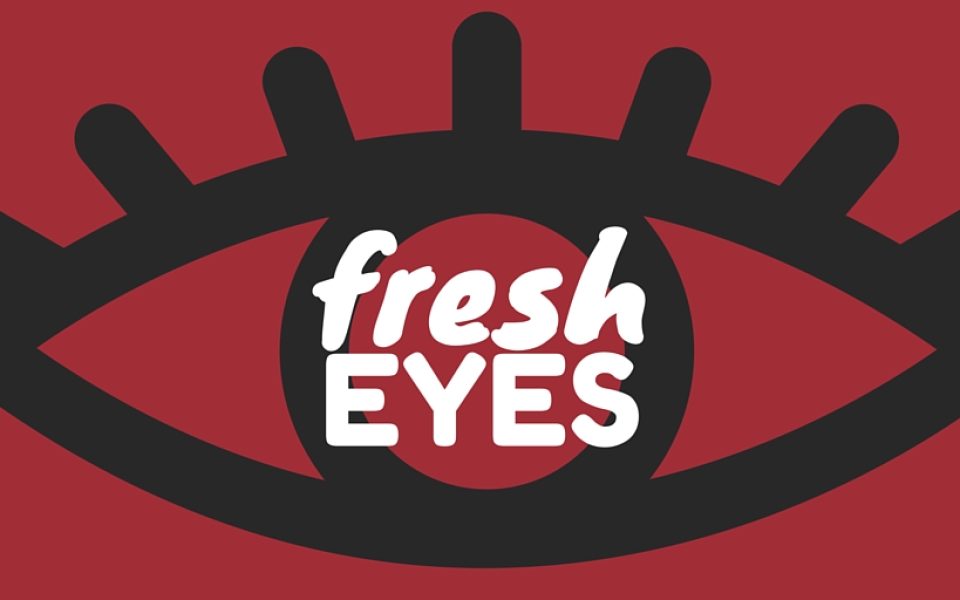 I have a lot of questions for white people.
I have a lot of questions for white people.
I specifically want to talk to those of you who somehow still deny that your whiteness provides you privilege, who don’t believe that race plays a role in every element of our lives, from interpersonal interactions to bank loans to police shootings, who are sick of talking about race and who wish that people like me would shut up about it.
I genuinely want to understand where you’re coming from.
I imagine, from talking to some people who share views similar to yours, that it could be because you see your personal experience as contradicting this narrative, because you don’t feel you’ve been afforded any particular edge in life and that our society has left you behind.
I think that’s why some of you will vote for Donald Trump, assuming that in him the working- or middle-class community you’re a part of will finally have a voice. And some of you will deeply resent my categorization, resisting my attempt to generalize about you based on the color of your skin rather than other aspects of your identity, things that you hold closer to your sense of self.
I could keep guessing, keep making inferences based on past conversations or things I’ve felt at various times. I have a feeling that might not take us very far. Instead I’d like to actually talk to you about it. Like, in person. Maybe over a beer.
I’ll admit that my intentions aren’t entirely pure, that in addition to truly wanting to understand where you’re coming from and to hear your answers to my many questions, I have an underlying agenda. There won’t be an invitation to some sort of Church of Social Justice afterwards, but I won’t insult your intelligence and pretend that part of my goal isn’t to encourage you to think about your whiteness differently.
Because I’m worried that in some ways you’re right — you don’t feel particularly privileged, I’m guessing, and are right to point to a very small ruling class in this country — but that your legitimate grievances will be tied up with the ways that you’re wrong. We do need to find a way to come together, as you sometimes say, to listen across our differences, but we don’t do that by ignoring them, by erasing history, by starting fresh without first taking out the trash.
Maybe some day we’ll sit down and talk. I’d like that. But until then, I’d like to share a few thoughts with you in the hopes that if we do discuss our whiteness, that you’ll come to the table ready to listen as well.
Maybe you, like me, don’t live with a constant and visceral fear of the police. Maybe you, like me, don’t worry that your name will some day appear next to Freddie Gray, to Sandra Bland, to Alton Sterling.
Maybe you, like me, don’t have to sell bootleg CDs, weed or loose cigarettes to get by. Maybe you, like me, don’t worry that a police detective or a jury is more likely to assume your guilt because of your race, heritage or religion, like Jorge Cornell or Adnan Syed. Maybe you, like me, don’t fear that a language barrier could lead to your untimely death, like Chieu Di Thi Vo, or that police won’t understand your health issues and mistakenly determine you’re armed, like James Paschal Jr.
These scenarios are not my personal reality, either. But that doesn’t make them any less real. If you, like me, cannot connect to any of these scenarios, don’t assume that your reality somehow negates them. I beg you to listen to people who live these realities. Do not turn away, as I initially did. Be affected. Listening alone is not enough, but it is a start.
That’s why I want to listen to you. And why I hope you’ll listen to me when I ask you questions like, “Have you ever had a black supervisor at work?” It struck me recently when a black friend in a managerial role told me his white subordinates never had that, that I rarely have either. Maybe you have. You and I are not the same, after all.
But I imagine we have more in common than we both might expect.
Eric Ginsburg is the associate editor of Triad City Beat.
Join the First Amendment Society, a membership that goes directly to funding TCB‘s newsroom.
We believe that reporting can save the world.
The TCB First Amendment Society recognizes the vital role of a free, unfettered press with a bundling of local experiences designed to build community, and unique engagements with our newsroom that will help you understand, and shape, local journalism’s critical role in uplifting the people in our cities.
All revenue goes directly into the newsroom as reporters’ salaries and freelance commissions.


One of the best bosses I ever had was a gay male; the worst an older white woman fond of “busy work” who never washed her hands after using the restroom–a real problem for the unlunched: anyone who couldn’t figure out why the rest of us emphatically turned-down her tomato-and-mayo sandwiches she brought from home (I’ve had to follow instructions per all kinds of people, and anyone who hasn’t should visit another county sometime–the only people I’ve had problems with are the highly-unqualified who are often always in charge, somehow).
Add to your “Maybe you, like me” list: don’t have to worry about being followed around a store because of the color of your skin.
I’m a middle aged, professional, black woman and it happened to me last week…in a well known national department store.